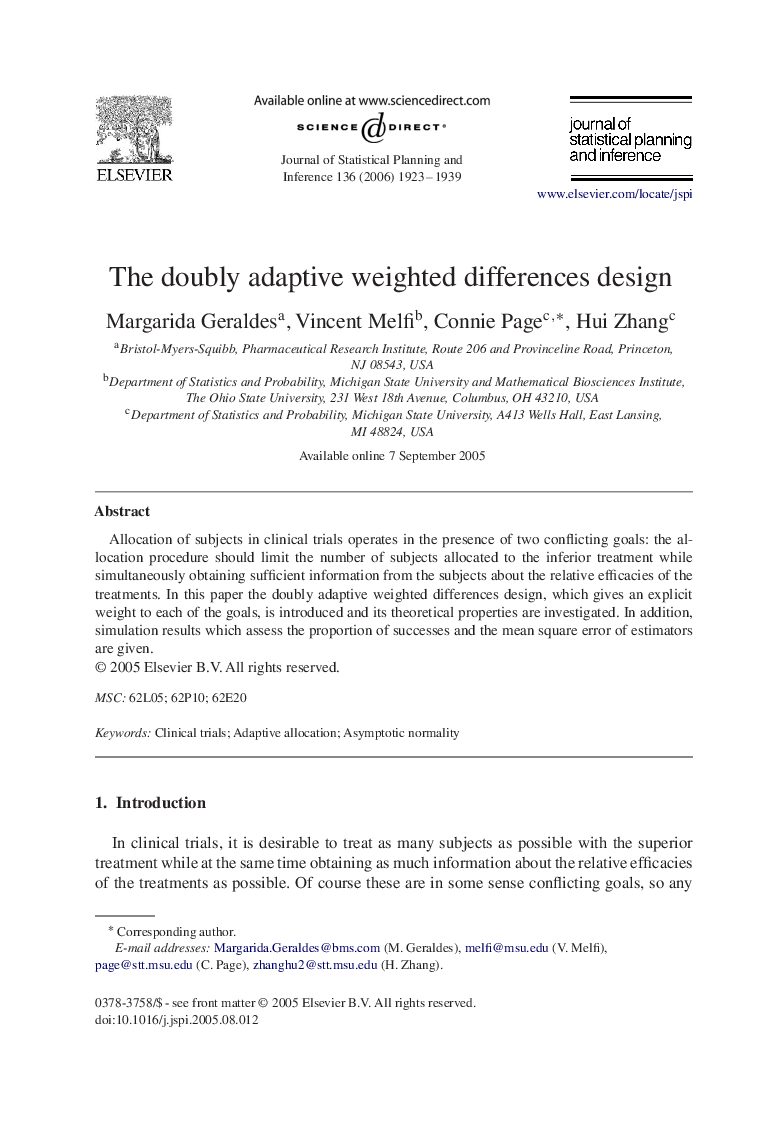| Article ID | Journal | Published Year | Pages | File Type |
|---|---|---|---|---|
| 1150733 | Journal of Statistical Planning and Inference | 2006 | 17 Pages |
Abstract
Allocation of subjects in clinical trials operates in the presence of two conflicting goals: the allocation procedure should limit the number of subjects allocated to the inferior treatment while simultaneously obtaining sufficient information from the subjects about the relative efficacies of the treatments. In this paper the doubly adaptive weighted differences design, which gives an explicit weight to each of the goals, is introduced and its theoretical properties are investigated. In addition, simulation results which assess the proportion of successes and the mean square error of estimators are given.
Related Topics
Physical Sciences and Engineering
Mathematics
Applied Mathematics
Authors
Margarida Geraldes, Vincent Melfi, Connie Page, Hui Zhang,
